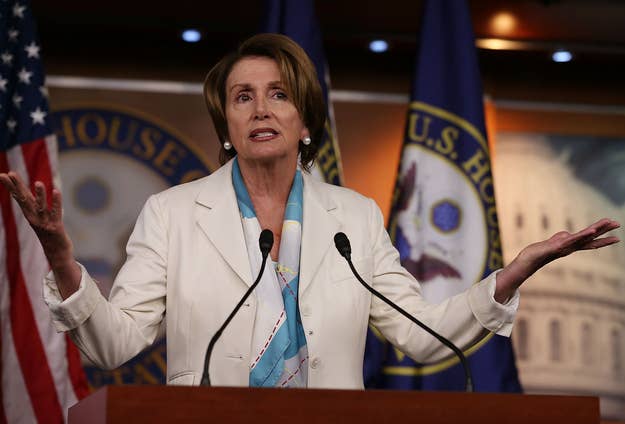
WASHINGTON— The White House's decision to delay Obamacare's employer mandate has forced Democrats to yet again rush to the law's defense as Republicans look to reignite the health care war.
Speaker John Boehner has announced the House will vote next week on the employer delay and subsequently vote on a delay for the law's individual mandate — a move designed to put Democrats on record as supporting a delay for businesses but not everyone else.
"Listen, is it fair for the president to give American businesses an exemption for the health law's mandates without giving the same break to individuals and families across the country? Hell no, it isn't," Boehner said at a Thursday press conference.
Privately, House Democrats are grumbling that the administration's decision only further boxes them into the already difficult corner of defending the law as it's implementation has hit bumps in the road.
But publicly, members are downplaying the delay's significance to the overall effectiveness of law — or the pushback they might get back home.
"Compared to the summer of 2010 when I had red-faced people threatening me that I was going to be drawn and quartered, I think explaining a delay is not going to be that bad," said Connecticut Rep. Jim Himes. "But if there's one thing that's concerning about the delay its that you want people to see what its like to get insurance. As things move from the abstract to the specific people are less scared."
"Look, in the real world it's better to get it right than to get it done fast. So I think taking this deliberately is the right thing to do. Are the Republicans going to raise hell about it? Of course, they've been raising hell about it for years. There's nothing new about that dynamic," he added.
Democrats have also been working to try and educate their constituents with about the law's benefits and enrollment — something they've been working to do since the law was first passed.
"The defense is to keep trying to stamp out the absurdities put out by the other side and the offense is making sure that someone who has never bought insurance understands that tax credits are generous, and yes, there's a real role for us to play in explaining the benefits of this bill," Himes said.
Rep. Chris Van Hollen likewise said Republicans, who have voted to repeal all or parts of the law 37 times, were simply using the delay as an excuse to try again to get rid of the law and argued that the public was tired of it.
"The delay was a relatively minor component that has lots of administrative issues. You would think Republicans would be cheering on the prospect of delaying that provision. Instead they've said we've just trying to use this as a way to try and get rid of the whole thing and people just roll their eyes," he said. "They've taken an all or nothing approach and the fact that they've taken this totally negative approach undercuts their position."
Van Hollen said Democrats would happily work with Republicans to fix parts of the law if Republicans were in the "frame of mind" to do so.
Rep. Jim McDermott, a Washington Democrat and advocate for single payer health care said a delay of the individual mandate, unlike the employer mandate, would make the law unworkable and he couldn't envision Democrats voting to delay it.
Even so, McDermott said it would eventually become easier to defend the law as more people enrolled and experienced the benefits. He liked the law to the implementation of Medicare, that he said experienced difficulties and eventually became extremely popular.
"This is just Medicare all over again. This is exactly how it came in, all kinds of resistance. Only difference then was that Democrats and Republicans came together to make it work," he said. "This time Republicans are determined to stop the creation of a national health plan."
Minority Leader Nancy Pelosi has argued since the announcement was made, that the employer mandate would only effect a small number of businesses who do not provide health insurance to their employees and the delay proved the administration's commitment to implement the law with "increased flexibility."
At her Thursday press conference Pelosi said that there was no reason for the individual mandate to be delayed as well and charged that what the administration had done was not really a delay at all. That claim earned her three Pinocchios from the Washington Post's fact checker.
"In fact, the point is, is that the mandate was not delayed. Certain reporting by businesses that could be perceived as onerous, that reporting requirement was delayed, and partially to review how it would work and how it could be better. It was not a delay of the mandate for the businesses and there shouldn't be a delay of the mandate for individuals," she said.
